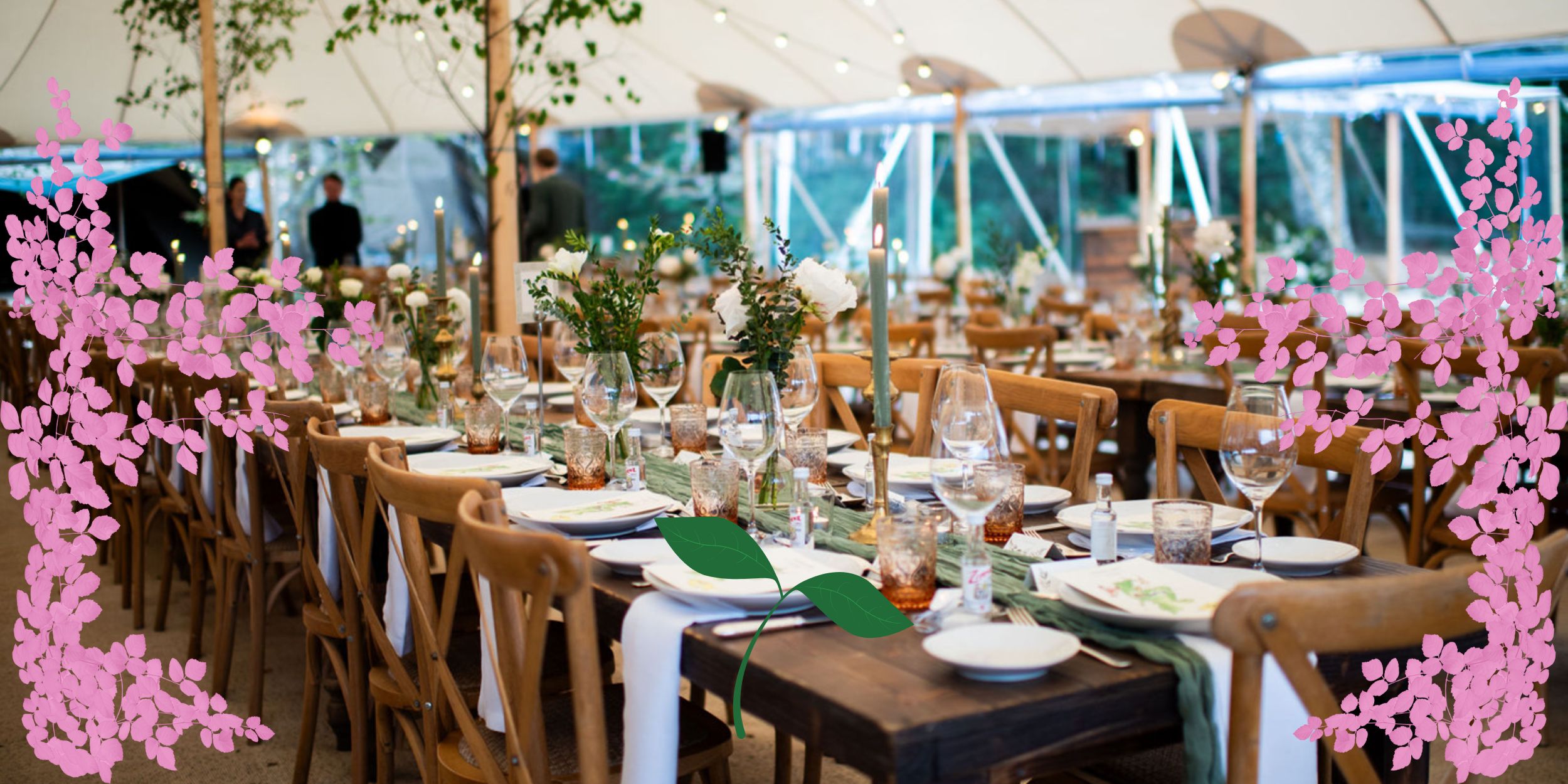This is, of course, not solely limited to event production or the creative industries but taking care to audit who you work with is central to sustainable event delivery. We take great pleasure in working with independent suppliers and producers through prioritising craft and experience. I believe this has both a positive effect on the footprint of the event but equally the overall quality. Meeting and working with such a broad set of skills and craftspeople is one of the great pleasures of working in events. This does have a budget consideration but when budget is limited we always suggest a simpler event with high-quality suppliers rather than trying to do it all by cutting corners.
Distance and travel is always a consideration and two areas where this most often rears its head is with catering and florals. These days almost everything is available everywhere but this is usually not the right route to go down. When considering our catering partners we always want to ensure that menus prioritise seasonal, local produce. If we’re contacting a new caterer and receive back a long menu that feels like it doesn’t get updated throughout the year this is a red flag to us. We work with a fantastic caterer,
Jimmy Garcia Catering, who specialises in 10-mile menus which are developed using ingredients sourced within 10 miles of their kitchens in London.
Prioritising locally grown flowers and foliage can also improve an event’s sustainable credentials. This can sometimes mean encouraging a client to avoid their favourite flower for their wedding because it isn’t in season and needs to be shipped in from Amsterdam but there are so many fantastic solutions closer to home. We produced a beautiful wedding in Sussex last year where all the flowers were grown 30 minutes away from the wedding venue and picked the day before.
Waste is a constant buzzword and consideration in the live events industry. The temporary nature of events is something we are always grappling with and there are three main questions we look at for each event: food waste, reducing in advance, unavoidable waste.
Food waste can be managed in advance by designing menus and quantities appropriately. Everyone wants to be a generous host but the flipside is landing up with vast quantities of waste post event. It’s important to work with your caterer and planner to understand what people will consume and how they consume it. Dessert stations and cheese buffets are all fun ideas and can be done well but these often leave to waste. Similarly with sharing-style menus where manners mean dishes are always left with food on them.
We do also often need to ask the question – is everything necessary? The most notable items often left behind at events are the trinkets and ‘gifts’ given to guests that either people don’t want or forget to take home with them. I’m often on the warpath against wedding favours as whilst they can be a nice touch they are rarely something guests actually want or need and land up being left behind or binned shortly after.
Inevitably there are always items left over after events and this is unavoidable. What isn’t unavoidable is taking the time to recycle or find new homes. Before each event we do a thorough review of everything being purchased for an event to understand what we will be left with afterwards. These may be items that the client wants to keep but if not we can make plans to gift these to local charities or shelters. More often than not there is a home for everything and wonderful charities like Floral Angels in London assist with delivering floral arrangements to hospices and care homes where they can be enjoyed for a few more days.
